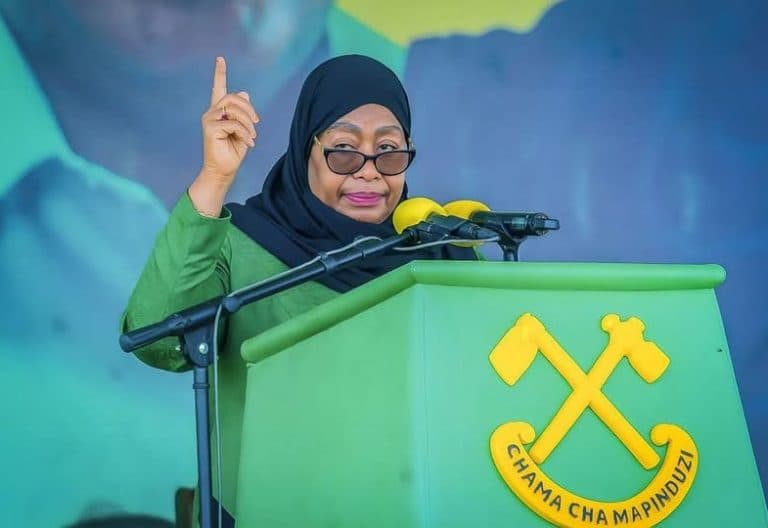We're loading the full news article for you. This includes the article content, images, author information, and related articles.
President Samia Suluhu Hassan's clemency for youths involved in post-election unrest signals a move towards national healing, a development with significant implications for political stability and trade within the East African Community.

DODOMA, TANZANIA – In a significant move aimed at national reconciliation, Tanzanian President Samia Suluhu Hassan on Friday, November 14, 2025, ordered the country's chief prosecutor to drop charges against young people arrested during the turbulent post-election protests of October 29, 2025. The directive, announced during her inauguration of the 13th Parliament in the capital, Dodoma, is a central plank in her administration's strategy to mend deep political divisions following a highly contested general election.
Addressing the nation, President Suluhu stated that the pardon applies to youths who participated in the demonstrations by “simply following the crowd” out of excitement or peer pressure, without fully comprehending the severity of their actions. “As a mother and guardian of this Nation, I direct law-enforcement agencies, particularly the Director of Public Prosecutions, to assess the magnitude of the offences committed by our young people,” she declared to applause from lawmakers. Quoting the Bible, she added, “Father, forgive them, for they do not know what they are doing.”
The clemency comes in the wake of one of Tanzania's most severe political crises in decades. The October 29 general election, which saw President Suluhu re-elected with nearly 98% of the vote, was marred by widespread allegations of irregularities. The country's main opposition parties, including Chadema, were barred from participating, and their leaders were arrested, with some facing treason charges.
The election results triggered days of violent protests across major cities like Dar es Salaam, Arusha, and Mwanza. In the ensuing crackdown, opposition parties and human rights activists allege that over 1,000 people were killed by security forces. The government has dismissed these figures as exaggerated but has not provided an official death toll. Hundreds of protesters were arrested, with dozens charged with treason, a crime punishable by death in Tanzania, though no executions have been carried out since 1995. The unrest was compounded by a nationwide internet shutdown that severely hampered independent reporting.
President Suluhu's pardon is a key component of her broader '4Rs' philosophy—Reconciliation, Resilience, Reforms, and Rebuilding—a framework she introduced to steer the nation away from the more authoritarian style of her predecessor, the late John Magufuli. Alongside the pardons, she announced the formation of an independent commission of inquiry to investigate the election-day violence and its root causes. This commission is tasked with identifying institutional failures and recommending measures to prevent future conflicts, with its findings intended to guide national reconciliation efforts.
The President has also committed to restarting the constitutional reform process within the first 100 days of her new term, a key demand of opposition groups. “I will not tire of extending the hand of reconciliation,” she affirmed in her parliamentary address, urging all political stakeholders to return to the negotiating table.
The political developments in Tanzania are being closely watched in Nairobi and across the East African Community (EAC). A stable and peaceful Tanzania is crucial for regional economic and security interests. Kenya's Deputy President, Kithure Kindiki, represented President William Ruto at Suluhu's swearing-in ceremony on November 3, 2025, reaffirming Kenya's commitment to strong bilateral ties. He described Tanzania as a “key friendly neighbour and strategic trade partner,” emphasizing that Kenya's future is “inextricably linked to a stable, peaceful and prosperous region.”
Since taking office in 2021, President Suluhu has actively worked to reset diplomatic and trade relations with Kenya, which had been strained under the previous administration. Her administration has launched a revised foreign policy focused on strengthening regional integration and cross-border trade within the EAC. However, persistent non-tariff barriers and differing national interests remain challenges to deeper integration between the EAC's two largest economies. The success of President Suluhu's reconciliation efforts will be a critical factor in ensuring Tanzania's internal stability, which is foundational to the collective progress and prosperity of the entire East African bloc.
Keep the conversation in one place—threads here stay linked to the story and in the forums.
Sign in to start a discussion
Start a conversation about this story and keep it linked here.
Other hot threads
E-sports and Gaming Community in Kenya
Active 9 months ago
The Role of Technology in Modern Agriculture (AgriTech)
Active 9 months ago
Popular Recreational Activities Across Counties
Active 9 months ago
Investing in Youth Sports Development Programs
Active 9 months ago
Key figures and persons of interest featured in this article